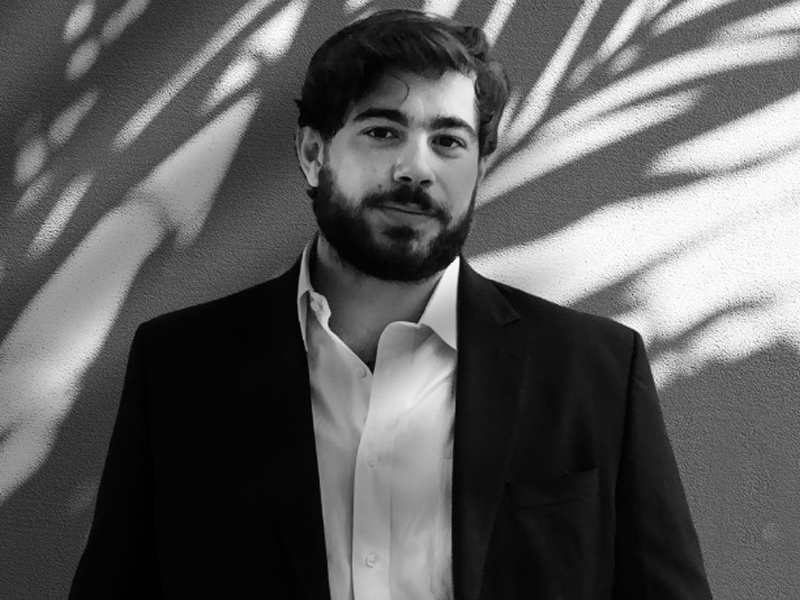A solution to compare delivery service apps - this alum finds the cheapest and fastest option

In the hangry process of choosing one out of thousands of restaurants to order take-out from, consumers are faced with yet another decision on which delivery service app to use. From Uber Eats to SkipTheDishes to Foodora, which app is cheaper and will deliver my food faster? With so many options to consider, it would almost be less of a headache simply to prepare a meal at home. Well, Faculty of Engineering and Architectural Science (FEAS) alumnus, Adham El-Khadem, found a way to solve this problem.
Creating his company during his time in the Masters of Engineering Innovation and Entrepreneurship (MEIE) program, ‘Buzz Food’ is Canada’s first comprehensive food delivery search engine, allowing customers to compare delivery fees and time estimates from thousands of restaurants scattered across multiple delivery apps at once.
The company also offered smaller restaurants a fighting chance at survival during the COVID-19 pandemic by promoting local businesses' take-out and delivery services who couldn’t afford the hefty commission fees that food delivery apps charge. “Buzz Food” created a food delivery cooperative that is looking to bring forth a more equitable relationship between restaurants, delivery drivers and consumers and became the first free-commission food delivery platform in Canada.
“As an international student, I was ordering food online a lot, and I saw that I was spending a lot of money on food delivery. I decided to download all of the applications like Foodora, DoorDash, SkipTheDishes, Uber Eats, and I started comparing different delivery fees and time estimates,” said El-Khadem. “In the first month, I saved $200.”
“I then started validating the idea, talking with my TMU peers and doing intensive research. I started the business from ideation to customer development plan, until I created a solution: a one-stop platform for all the food delivery services.”
By reinventing the way we order and deliver food, El-Khadem was able to help more than 25,000 Canadians save time and money when ordering food online. El-Khadem won stages one and two of the Esch Award, which offers students financial support to invest in their innovations. He graduated from the DMZ bootcamp and was one of 12 finalists for Canada’s Student Entrepreneur of the Year competition, presented by HSBC Bank of Canada.
“If I didn’t win stage one, I wouldn’t have even been able to conduct research, and stage two helped me create what I had in mind as a concept because I didn’t have enough cash,” said El-Khadem. “My mentors and peers helped me to reach each milestone.”
Before arriving in Canada just two years ago to pursue his graduate studies at TMU, El-Khadem studied Telecommunications and Cloud engineering at the Otto-von-Guericke University of Magdeburg. He later joined Vodafone, where he served as the youngest board member of the company at the time.
After exploring the opportunities TMU’s MEIE program offers and connecting with the FEAS community, El-Khadem decided to take the leap and begin a new journey at TMU. To ensure that students like El-Khadem were supported during the COVID-19 pandemic, the MEIE program offered assistance to domestic and international graduate students who had been impacted financially by the COVID-19 pandemic.
“It was a hard decision to leave everything in Egypt and start a new adventure in the middle of nowhere. However, the program’s content and how the staff and professors connected with me when I was in Egypt gave me the impression that I needed to join the program and take the risk.”
Moving to a new country for school can be a daunting process. Still, El-Khadem describes how the opportunity to collaborate with like-minded and passionate students made his transition easier. For El-Khadem, one of the most valuable experiences in the MEIE program was the practical knowledge he gained.
“The best thing about the program is that you earn a degree while launching your startup. Once you finish the program, there’s an opportunity to actually continue your startup. You learn every single step on how to commercialize your product and how to turn your idea into a viable business,” said El-Khadem. “Even if you don’t end up with a project that is commercialized in the market, you have all the knowledge needed to develop and manage a product from scratch to implementation.”
“The program teaches you about the significance of going lean. This action is crucial to find out if your idea is gold or if you’re out of luck. Throughout this process they ensure you keep your cards close to your chest because an idea is fundamental, but execution is everything.”